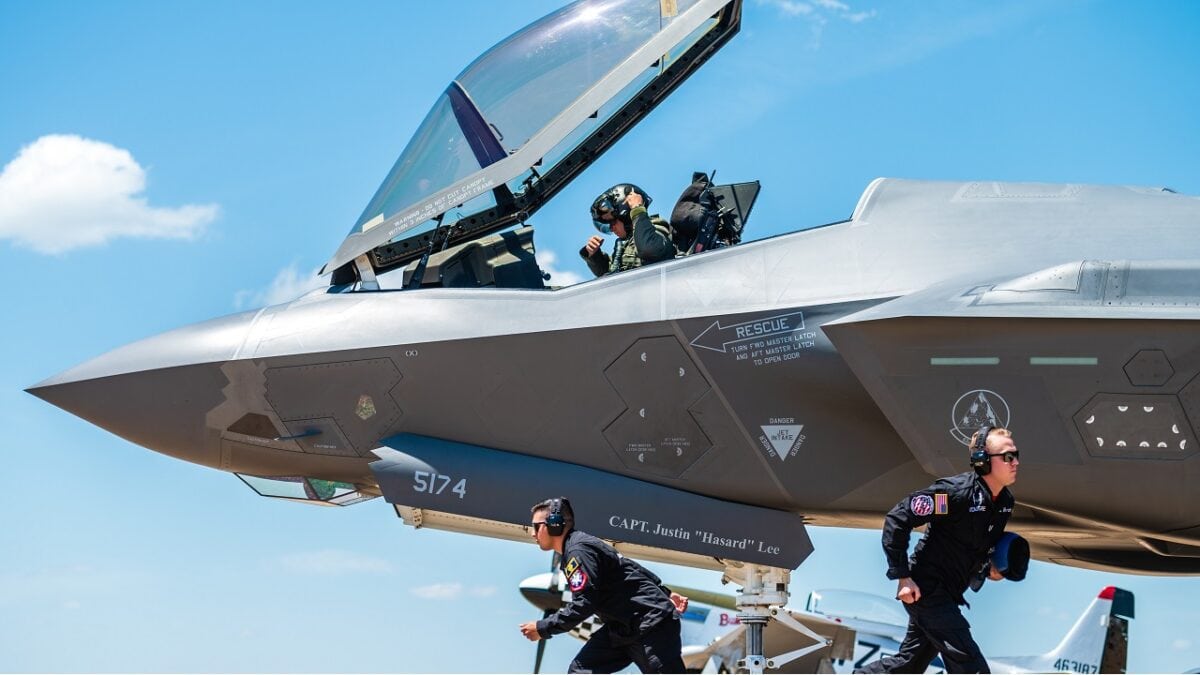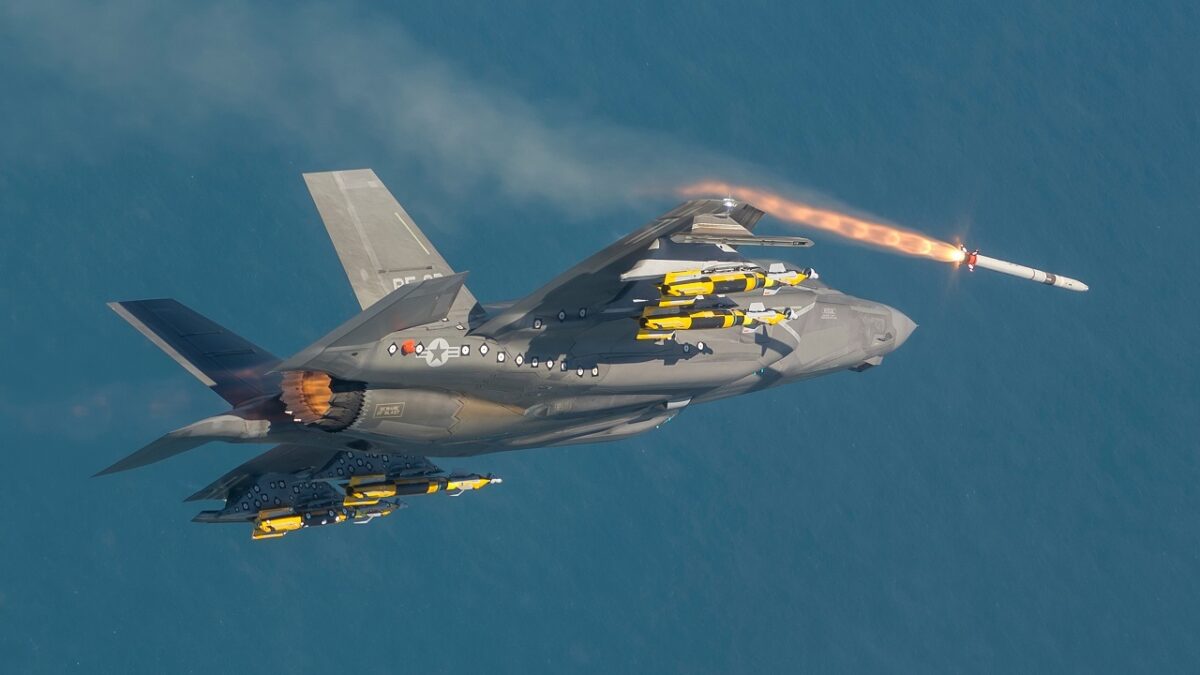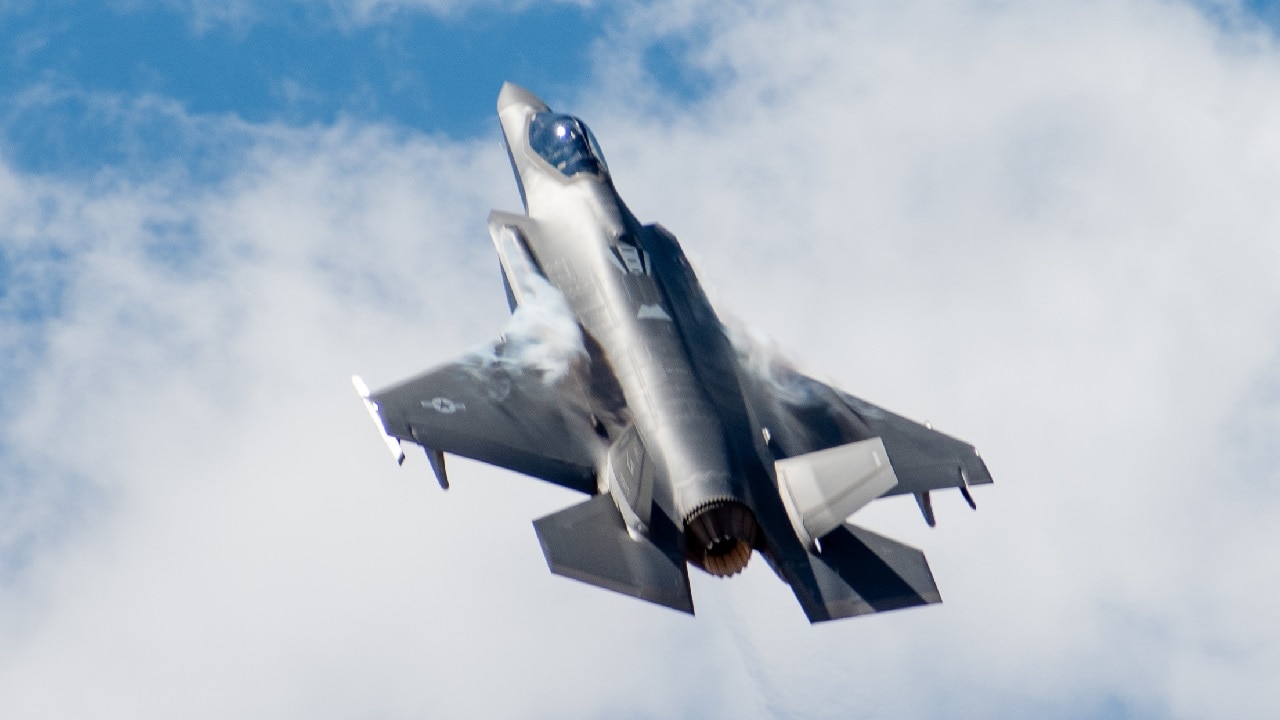The United States Air Force’s Lockheed Martin F-35 Lighting II “stand down” ended earlier this week, after the entire fleet of aircraft had been checked for potentially faulty parts in the fighters’ ejection seats. The fifth-generation stealth fighters, which supporters say are the most capable combat aircraft in service today, have been cleared to resume normal operations, Air Combat Command announced.
The stand down, ordered on July 29, affected fleets across ACC, Air Education and Training Command, U.S. Air Forces in Europe, and Pacific Air Forces. Air Force Magazine reported that most of the service’s 349 jets have been inspected, as have the additional supplies of the key part in question – a cartridge-actuated device (CAD).
As a result, F-35s around the world were grounded. The U.S. Navy and United States Marine Corps conducted inspections on their respective F-35s as well as other aircraft – including the F/A-18 Super Hornets and Growlers – that employed Martin-Baker seats. The Israeli Air Force also conducted a complete review of its F-35I Adir variants, while Germany and the United Kingdom announced inspections as well.
Small Number of Aircraft Impacted
Service technicians inspected a total of 706 cartridges from 349 F-35s, as well as additional supplies of spare cartridges, and only four “were found to be suspect” and replaced. It should be further noted that under the normal Time Compliance Technical Directive (TCTD), all of the aircraft will be inspected within 90 days, including those that are now in depot status.
At the center of the issue was a CAD that was found to have had an insufficient amount of explosive powder, during a routine F-35 inspection at Hill Air Force Base (AFB), Utah in April. It was found that the particular cartridge was loose and missing its explosive powder, which would not have allowed the CAD to initiate the necessary actions if the pilot required an ejection from the aircraft.
Hill AFB personnel conducted an inspection and determined it wasn’t a widespread problem, which allowed the fighters to return to service. However, Martin-Baker, the company that manufactures the seats, had also found two more defective cartridges in its own stores this spring. The company also found, during a quality check that followed, that its production line was creating defective cartridges.
Out of precaution, the entire F-35 fleet was grounded while an inspection of each aircraft was conducted. Inspecting each cartridge involved taking the jet out from service for at least a day so that the seat could be removed. Each CAD was removed and inspected. If maintainers were unable to determine if the cartridge had enough explosive powder, it was then X-rayed.

F-35 Lightning II demonstration team members sprint to their positions during the ground show at the Defenders of Liberty Air & Space Show at Barksdale Air Force Base, La., May 17, 2019. The team’s ground show consists of pre-flight inspections with sharp, quick-paced movements that showcase the pride and professionalism of the U.S. Air Force. (U.S. Air Force photo by Senior Airman Alexander Cook)
Martin-Baker, which has no affiliation with Lockheed Martin, has designed and manufactured ejection and crashworthy seats for more than 70 years. Its products are used in dozens of military aircraft around the world.

US Air Force F-35 Stealth Fighter.
A Senior Editor for 1945, Peter Suciu is a Michigan-based writer who has contributed to more than four dozen magazines, newspapers, and websites with over 3,000 published pieces over a twenty-year career in journalism. He regularly writes about military hardware, firearms history, cybersecurity, and international affairs. Peter is also a Contributing Writer for Forbes. You can follow him on Twitter: @PeterSuciu.

